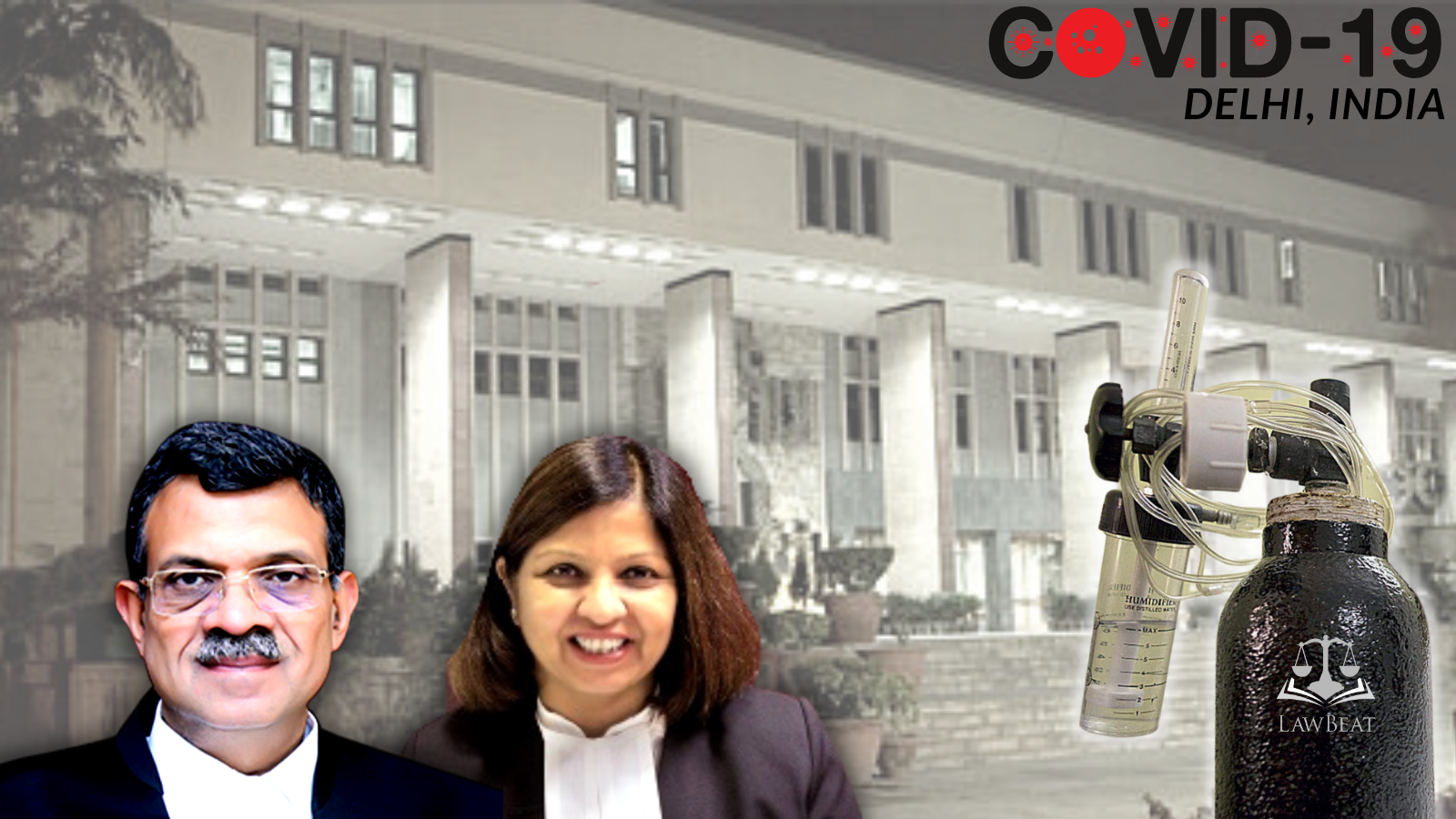"Delhi Government must speed up process of arranging Oxygen storage tanks": Delhi High Court

The Delhi High Court has asked GNCTD to speed up its process of making arrangements for storage facility of Liquid Medical Oxygen (LMO) Storage Tank in the National Capital in view of the increasing demands of oxygen for treating Covid patients.
The division bench comprising Justices Vipin Sanghi and Rekha Palli passed the above order while hearing a batch of pleas dealing with the issue of Covid mismanagement in the capital.
Amicus Curiae Mr. Rao pointed out before the bench that it was for the GNCTD to speed up the process of storage of LMO as it appeared that the GNCTD had not taken any step so far.
Senior Adv Aditya Prasad further suggested that cryogenic tankers may be utilised for supplying oxygen to small hospitals. He further suggested that for the purpose of installing large LMO tanks, help may be taken from Army Service Squad, EME and the core of Engineers without delay.
The bench was informed that INOX is one of the manufacturers of static cryogenic tankers and there may be more. In this light, bench directed the Centre and GNCTD to explore the possibility of increasing such tankers in accordance with the orders of the Supreme Court, for which it could consider taking help of IIT and Delhi Technological University to prepare a blueprint of the supply and distribution of LMO and oxygen cylinders.
It has been directed that the estimation should be prepared on the basis of the plans that would be worked out in consultation with other wings of GNCTD.
Prasad also submitted that a research has been conducted by him on the internet where many vendors have been found for PSA plants and oxygen generators.
He submitted that the GNCTD similarly should carry out the exercise and procure the necessary equipment for the purpose of generation, transport and storage of oxygen.
The bench directed Prasad to share his research with the amicus and GNCTD and directed GNCTD to look for other vendors to meet their demands and a status report be filed before the court.
Several other issued were put forth by the Amicus Rajshekhar Rao before the bench. Rao expressed concern with respect to the manner in which a large amount of foreign aid received in the form of medical equipments were being distributed. He pointed out one instance of lady Hardinge Medical College which has more oxygen in comparison to the available beds. So far as ICU is concerned oxygen concentrators are of no avail.
Expressing his fear Rao submitted that such random and arbitrary distribution of medical equipment may result in failure of it being sent at the right portals.
Justice Sanghi, taking Amicus Rao’s concern into consideration said “In our view concern expressed by Mr. Rao has merits. We ask the Central Govt to look into the instance pointed out by Mr. Rao and also to look at the allocation made till now to the hospitals and govt institutions. The distribution of such assets should also be considered to voluntary organizations for rendering public service such as Gurudwara and other NGO’s”.
Justice Sanghi further remarked, “One must not forget that the equipment has been received in aid for the people of India and the same should be utilized for their benefit.”
The bench also considered several instances in which the RTPCR is showing false negatives. The bench thus directed that insistence on submission of RTPCR should not be made mandatory for treatment of patients.
Amicus Rao also suggested that the government should amend its portal so as to allow a doctor’s prescription or Rapid Antigen Test for the same.
Advocate Urvi Mohan appearing for Delhi building and other construction workers welfare board informed the Court that the GNCTD has issued a circular whereby it has been decided to pay Rs 5000 each to every RTPCR positive registered construction worker. Rs 10,000 per family is also to be given to the family of such a worker.
The board has also prepared a SOP for providing financial aid which requires the construction worker to submit his request online on e-portal through mobile Sahayak or through WhatsApp. The documents required are RTPCR report and a copy of the construction workers id card and bank account details. The details are present on WhatsApp groups.
The bench however was of the view that the cap the amount of Rs 10,000 per family is not justified since covid is a serious disease and if a person gets infected the others may also get infected and for treatment of others financial support is required for other members as well.
It was further observed that the insistence on RTPCR report defeated the object of the scheme since the RTPCR test may not be affordable by a construction worker and there is likely to have false negative reports.
The bench thus suggested that a certificate from a qualified medical practitioner or a rapid Antigen Test may be accepted as a valid document and directed the board to strictly adhere to the timeline for grant of such financial assistance to the construction workers.
The bench further suggested that the said scheme should be re advertised to the construction workers by sending a message on their mobile numbers
